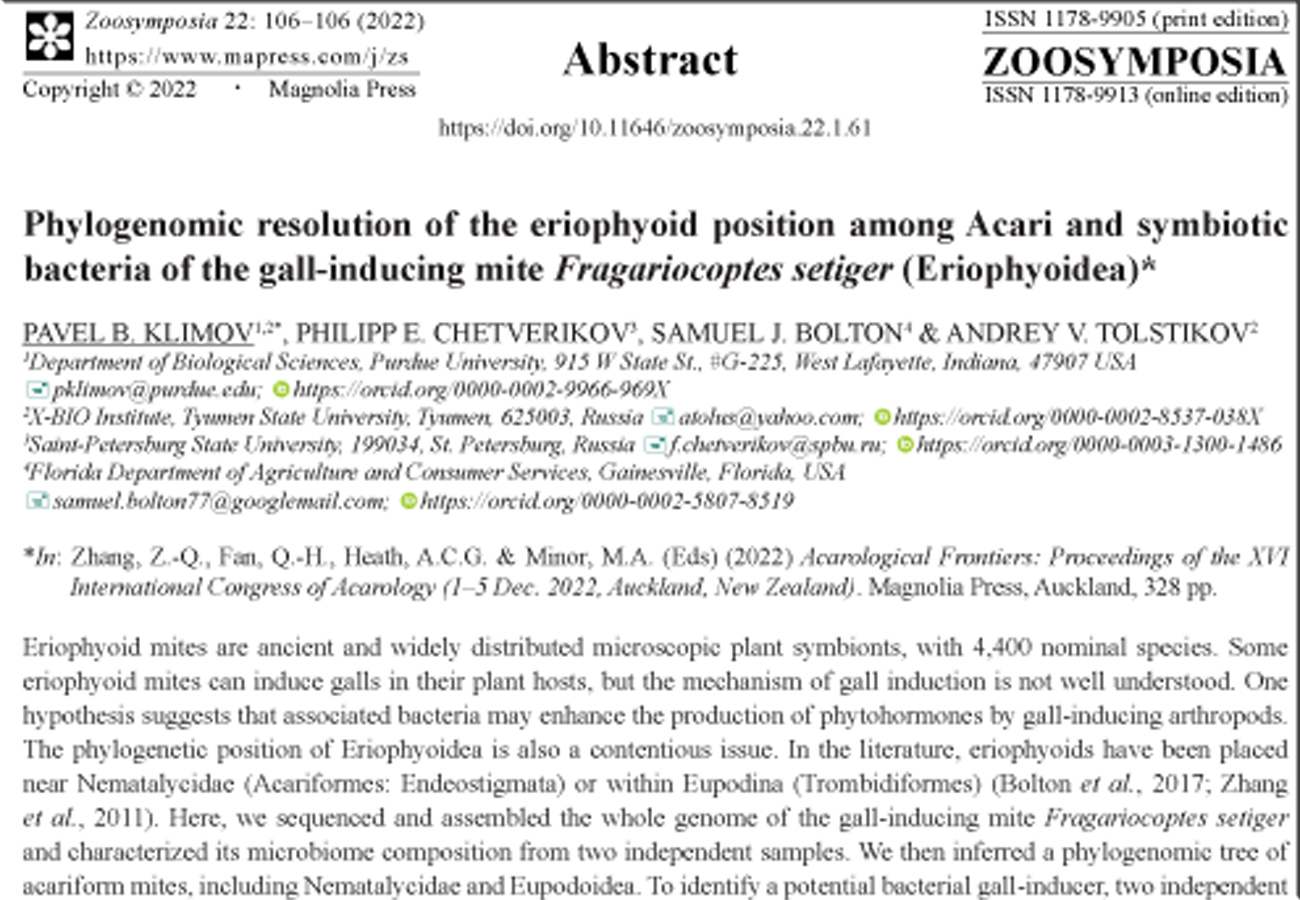Abstract
Eriophyoid mites are ancient and widely distributed microscopic plant symbionts, with 4,400 nominal species. Some eriophyoid mites can induce galls in their plant hosts, but the mechanism of gall induction is not well understood. One hypothesis suggests that associated bacteria may enhance the production of phytohormones by gall-inducing arthropods. The phylogenetic position of Eriophyoidea is also a contentious issue.
References
Bolton, S.J., Chetverikov, P.E. & Klompen, H. (2017) Morphological support for a clade comprising two vermiform mite lineages: Eriophyoidea (Acariformes) and Nematalycidae (Acariformes). Systematic & Applied Acarology, 22 (8), 1096–1131.
Klimov, P.B., Chetverikov, P.E., Dodueva, I.E., Vishnyakov, A.E., Bolton, S.J., Paponova, S.S., Lutova, L.A., Tolstikov, A. V. (2022) Symbiotic bacteria of the gall-inducing mite Fragariocoptes setiger (Eriophyoidea) and phylogenomic resolution of the eriophyoid position among Acari. Scientific Reports, 12 (1), 3811.
Zhang, Z.-Q., Fan, Q.-H., Pesic, V., Smit, H., Bochkov, A.V., Khaustov, A.A., Baker, A., Wohltmann, A., Wen, T., Amrine, J.W., Beron, P., Lin, Ji., Gabrys, G. & Husband, R. (2011) Order Trombidiformes Reuter, 1909. Zootaxa, 3148, 129–138.


